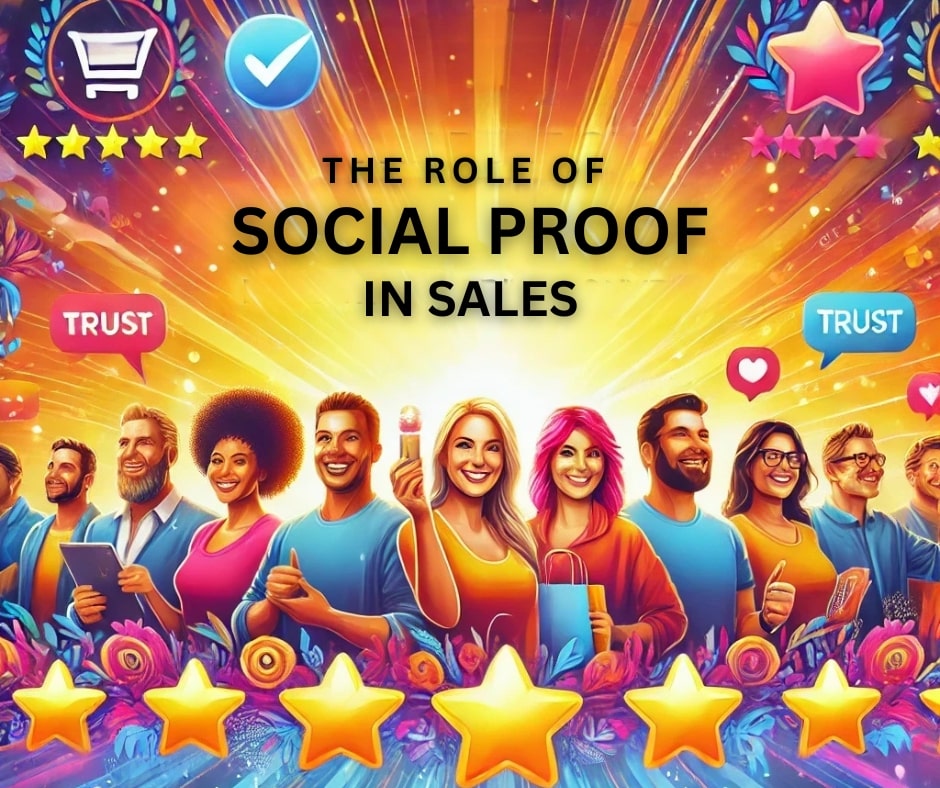Social proof has become one of the most influential elements in modern sales and marketing strategies. In an era where trust and credibility can make or break a business, understanding the role of social proof in sales is essential for anyone looking to achieve sustainable growth. By leveraging social proof effectively, businesses can establish stronger connections with their audience, reduce buyer hesitation, and create lasting loyalty. In this comprehensive guide, we’ll delve deeper into the psychological principles behind social proof, its various forms, and actionable strategies to implement it successfully. Additionally, we’ll explore advanced ways to measure its impact and continuously refine your approach.
Understanding the Psychology of Social Proof
The foundation of social proof lies in human psychology. At its core, social proof is driven by our innate tendency to look to others when making decisions, especially in uncertain or unfamiliar situations. This phenomenon, known as “informational social influence,” is deeply rooted in our evolutionary need for survival. People are naturally inclined to trust the opinions and actions of others, particularly when they perceive them as knowledgeable or relatable. By understanding these psychological drivers, businesses can craft campaigns that resonate on a deeply emotional level, fostering trust and encouraging action.
Exploring Different Types of Social Proof
Social proof comes in various forms, each serving a unique purpose and audience:
- Customer Testimonials and Reviews: These are personal accounts from customers sharing their positive experiences. They build credibility and provide relatable evidence of a product’s value.
- Expert Endorsements: Recommendations from industry professionals, influencers, or thought leaders lend authority and trustworthiness to your brand.
- User-Generated Content (UGC): Authentic content like photos, videos, or posts created by customers showcases real-world use of your product or service.
- Case Studies and Success Stories: In-depth narratives that illustrate how your product solved a specific problem or achieved significant results for a customer.
- Social Media Engagement: Metrics like likes, shares, and comments serve as public validation of your brand’s popularity.
- Certifications and Awards: Recognitions from reputable organizations demonstrate excellence and reliability.
- Crowd Validation: The sheer volume of users or customers, such as “Trusted by over 1 million users worldwide.”
Each type of social proof can be tailored to align with your brand’s goals and audience preferences.
Advantages of Using Social Proof in Sales
The role of social proof in sales extends far beyond just influencing purchase decisions. Here are some of the key benefits:
- Building Credibility: Social proof enhances your brand’s authority by showcasing real-world results and endorsements.
- Reducing Uncertainty: Positive testimonials and reviews alleviate doubts and reassure potential customers about their decision.
- Creating a Sense of Urgency: Highlighting popularity or scarcity, such as “Only 3 spots left!” encourages quicker action.
- Enhancing Customer Retention: Loyal customers are more likely to become advocates, contributing to a cycle of positive social proof.
- Driving Higher Conversion Rates: By demonstrating value and reliability, social proof simplifies the decision-making process and increases sales.
Proven Strategies for Leveraging Social Proof
- Curate and Display Testimonials: Gather impactful testimonials and feature them prominently on your website’s homepage, landing pages, and marketing materials.
- Showcase Reviews: Highlight customer reviews on platforms like Google, Yelp, and your own website to build trust.
- Collaborate with Influencers: Partner with influencers who align with your brand values to expand your reach and credibility.
- Run UGC Campaigns: Encourage customers to share their experiences using specific hashtags or running contests that reward creativity.
- Feature Data-Driven Proof: Share metrics like “98% customer satisfaction” or “10,000 units sold” to emphasize trustworthiness.
- Utilize Social Media Proof: Pin top-performing posts, create highlight reels, or share screenshots of positive customer interactions.
- Offer Real-Time Updates: Display dynamic notifications like “John from Texas just purchased this product” to enhance urgency and relatability.
Measuring the Effectiveness of Social Proof Strategies
To maximize the impact of social proof, it’s essential to measure its effectiveness. Use the following methods to evaluate and refine your approach:
- Analytics Tools: Platforms like Google Analytics or Hotjar can track engagement and conversion rates on pages featuring social proof.
- A/B Testing: Experiment with different types of social proof to identify which resonates best with your audience.
- Customer Feedback: Collect feedback from customers to understand how social proof influenced their decisions.
- ROI Analysis: Compare sales or engagement metrics before and after implementing social proof strategies.
- Engagement Metrics: Monitor social media interactions and website click-through rates to assess visibility and impact.
Advanced Applications of Social Proof
For businesses seeking to stay ahead, consider these advanced tactics:
- Personalized Social Proof: Tailor recommendations and testimonials to individual users based on their preferences or past behavior.
- Interactive Proof: Use live polls, Q&A sessions, or customer stories to create dynamic engagement.
- Localized Proof: Highlight endorsements or success stories specific to a target region or demographic.
- AI-Driven Insights: Leverage artificial intelligence to analyze customer behavior and optimize your social proof strategies.
Ethical Considerations in Social Proof
While social proof is a powerful tool, it’s vital to use it ethically. Avoid fabricating reviews or endorsements, as this can damage your brand’s credibility and reputation. Transparency is key to maintaining trust and fostering genuine connections with your audience.
By understanding and harnessing the role of social proof in sales, businesses can unlock unparalleled opportunities for growth and customer engagement. With the right strategies and continuous optimization, social proof can become a cornerstone of your sales success story.













